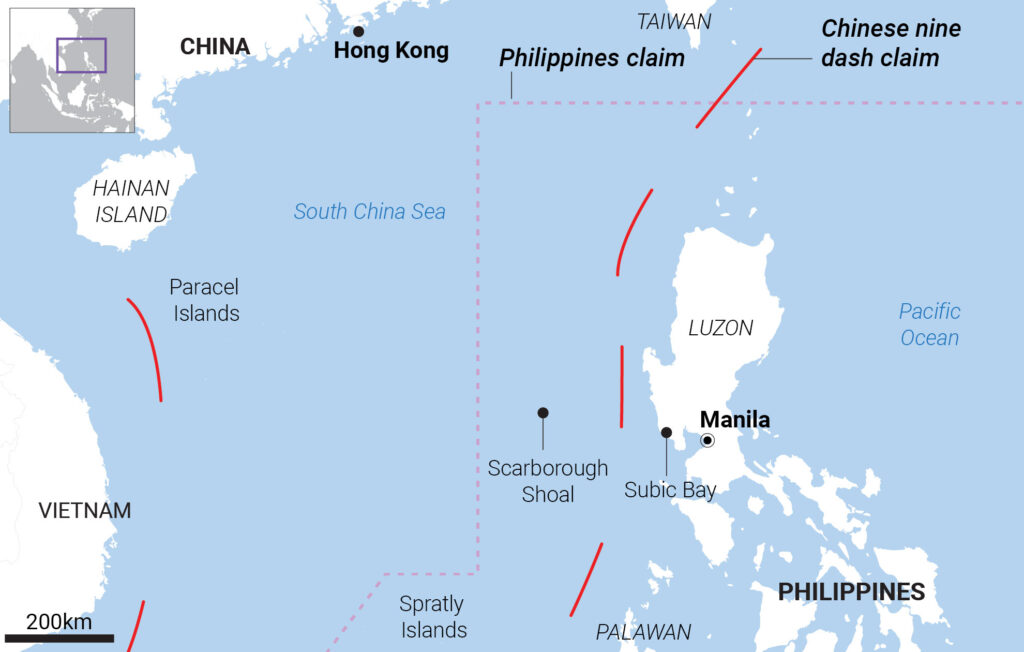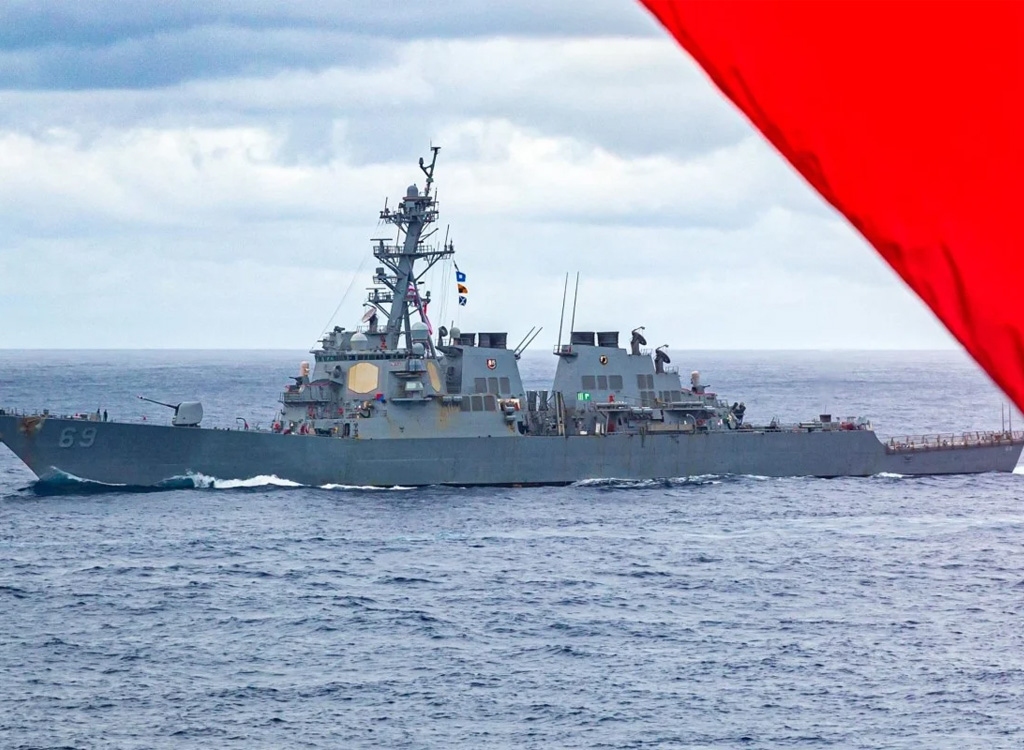Beijing accuses Washington of ‘double standards’ in first report of its kind criticising its activities in South China Sea and Taiwan Strait
The Chinese government has hit out at US freedom of navigation operations in the first report of its kind.
The report – “Legal Assessment of the United States’ ‘Freedom of Navigation’” – is the first official study of its kind published by Beijing and marks its growing desire to challenge what it characterised as “gunboat diplomacy”.
“US ‘freedom of navigation’ lacks a basis in international law and seriously distorts the interpretation and development of international law,” the report said.
It challenged Washington’s position on a number of grounds, saying: “The United States created several ‘legal concepts’. One is ‘international waters’. It does not exist in the contemporary law of the sea.”
The report added that freedom of navigation operations “risk threatening regional peace and stability with military force and disrupting the international maritime order [and] embody distinct illegality, unreasonableness and double standards”.
The report added: “The US Navy has repeatedly and continuously entered into the territorial seas of other states worldwide for many years, aiming to challenge the requirement that foreign warships must give prior notification or receive authorisation before entering territorial seas.”
It also took aim at Washington’s “unilateral and extreme” interpretation of exclusive economic zones, saying it was “attempting to fully apply the concept of high-seas freedoms within EEZs in order to maintain its hegemonic interests in the world’s oceans”.
The US freedom of navigation programme was formally established in 1979. During the Cold War it was mainly focused on the Caribbean and Mediterranean, but in the 1990s the focus shifted towards the Asia-Pacific region – including the Taiwan Strait and South China Sea.
In recent years there has been an increase in freedom of navigation operations in the contested South China Sea, to assert that the waterways are international sea routes. Beijing claims historical rights to the vast majority of the waterway.
Freedom of navigation is a principle of international law by which countries generally do not have the right to interfere with one another’s ships.
The report accused the US of placing a one-sided emphasis on military activities in its concept of freedom of navigation.
“When US ‘freedom of navigation’ is entirely subordinate to military and strategic purposes and used to deter and pressure other states, it has completely morphed into a ‘freedom of military threat’,” it said.
The US says its operations adhere to international law, including the United Nations Convention on the Law of the Sea, even though Washington has not ratified it.
The Pentagon’s latest annual Freedom of Navigation report identified China as the top target among 11 countries or regions, with the most challenged claims.
“US ‘freedom of navigation’ [operations] frequently cause unnecessary friction. In several severe cases, it leads to maritime and aerial accidents,” the Chinese report said.

The report was initiated by the China Institute for Marine Affairs under the Chinese Ministry of Natural Resources and completed in collaboration with several think tanks and universities.
It noted that China had been “the primary target” of Washington’s operations in the South China Sea over the past decade, although the US repeatedly said that those operations were not targeted at any specific country.
The Chinese report also accused Washington of adopting “so-called customary international law based on US-created concepts and self-imposed standards, which are inconsistent with international law and many state practices”.
“The US uses these claims to try its best to curtail the legitimate rights and interests of other countries … to achieve unfettered ‘freedom’,” it said.
It also said the US had created the concept of a “high seas corridor” to justify its transits through the Taiwan Strait.
Beijing sees Taiwan as part of China and has never renounced the use of force to bring it back under its control. It regards the Taiwan Strait as part of its territorial waters.
Most countries, including the US, do not recognise Taiwan as an independent state, but Washington is opposed to any attempt to take the self-governed island by force and is committed to supplying it with weapons.
China’s expansive claims in the South China Sea are challenged by a number of neighbouring countries.
In recent years, the Philippines has been the most active in challenging Beijing’s claims, leading to a number of confrontations around disputed features such as Scarborough Shoal and Second Thomas Shoal.
In a joint statement on Friday, Philippine Defence Secretary Gilberto Teodoro Jnr and his visiting Australian counterpart Richard Marles “expressed serious concern over the situation in the South China Sea, particularly dangerous and coercive actions by China against Philippine vessels”.











Leave a comment